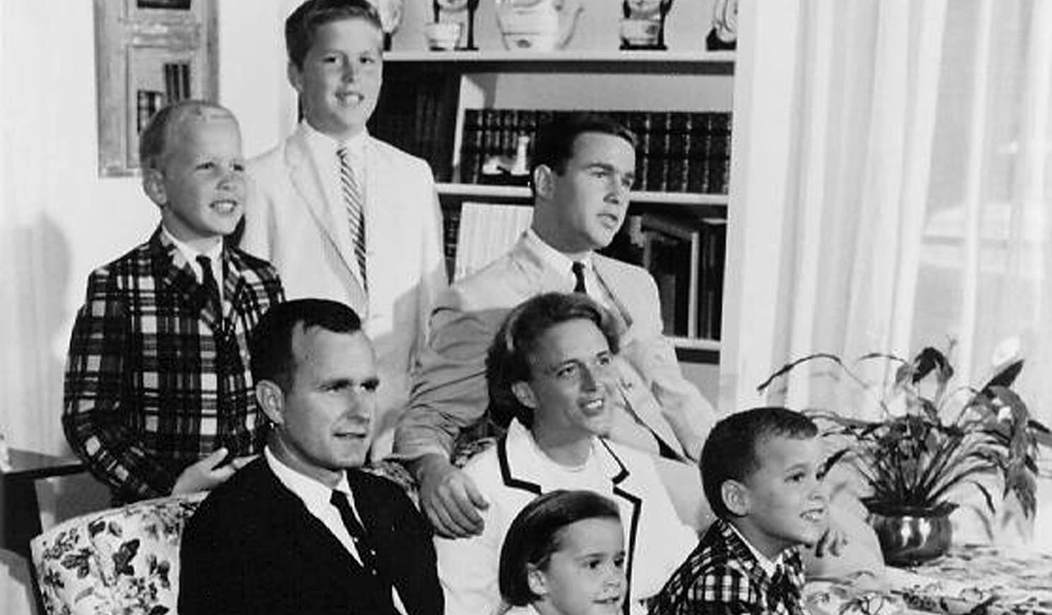While there were certainly a few people who maligned Barbara Bush’s memory following the announcement that the former first lady had died, many people–from former presidents and politicians to professional athletes and regular folks–praised the many attributes of Mrs. Bush. Yet the irony of this is that while living, and especially while her husband and son were presidents, Bush was the recipient of regular criticism, not for her political views, but for her lack of them; not for her sharp tongue, but for her failure to speak out as a voice for women. In short, in life, the modern feminist movement expects women to fit in a particular liberal mold, and it’s only in death that everyone, including progressives, realizes what’s really important–or at least pretends to do so.
Condolences and tributes have poured in to honor Mrs. Bush since the news of her death Tuesday. Obituaries noted her “privileged upbringing,” which she recognized and refused to hide. They reported her sharp tongue and dedication to family. Noticeably absent was any acknowledgment of a steady career outside her home and loved ones, save for the dedication she showed to literacy and volunteer efforts. Absent because there really wasn’t one. Yet Bush was not only at peace with this, but prioritized her husband, family, and literacy above all else—by choice. She championed her family above any other “career” and purposefully chose to live this way.
While it’s nice to see so many accolades from people on both sides of the political aisle about such a feisty, family-loving Republican–Presidents Bill Clinton, Barack Obama, and Jimmy Carter all tweeted about or acknowledged her kindly in a statement–during her life she was lambasted for the same things for which she’s now being praised.
While on the campaign trail in 1979, the Today Show’s Jane Pauley pointed out Bush’s “old-fashioned” priorities rather pointedly: “Mrs. Bush, people say that your husband is a man of the ’80s and that you are a woman of the ’40s. What do you say to that?”
Lady Bird Johnson’s former press secretary Liz Carpenter criticized Bush for joining her husband in the White House yet remaining mum on issues that were important to women. Bush did not respond until her 1994 memoir, wherein she wrote: “Long ago I decided in life I had to have priorities. I put my children and husband at the top of my list. That’s a choice that I never regretted.”
Not only did Bush fail to regret this despite regular criticism, she continued to value her children, refusing to give in to the sentiment that her life would have value if she adopted a 9-5 career. She did this even during times of controversy and even after her children were grown. “Mothers are allowed to be proud of their sons,” she told CNN anchor Larry King in 2003.
Bush believed in many things: God, family, and politics. Literacy was important to her too. When she had a platform thanks to her husband’s presidency, she didn’t fail to use it to promote something that mattered to her. Feminist critics at the time accused her of riding on the coattails of the patriarchy, promoting an easy cause. When Wellesley College invited Bush to speak at their commencement in 1990, the campus responded with full fury, asking whether she was deserving of such an invitation given her traditional beliefs and how they contrasted with the country’s commitment—especially in the nineties—to modern feminism.
President George H.W. Bush defended the love of his life at the time: “’I think these young women can have a lot to learn from Barbara Bush and from her unselfishness and from her advocacy of literacy and of being a good mother and a lot of other things.”
Indeed, the world has learned a lot from Bush by watching her live a life in accordance with her values–ignoring feminist tripe and criticism. We can honor her in death knowing she had the grit and ferocity to stand firm in what she believed.









Join the conversation as a VIP Member